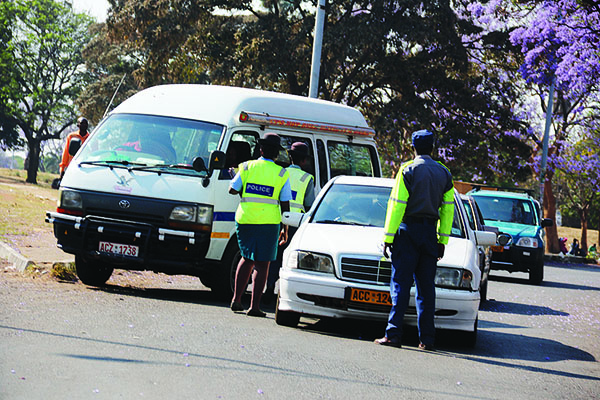
It is illegal for police officers to impound cars on Zimbabwean roads except when there are special circumstances where the driver of the vehicle is asked to produce their driver’s licence, human rights lawyer Kennedy Masiye has said.
BY SILENCE CHARUMBIRA
Masiye was speaking to NewsDay yesterday after police said they had impounded 298 vehicles for various offences committed during the just-ended Easter holiday.
“The law does not give the police power to impound vehicles. The only time they can impound a vehicle is, as empowered by Section 74 of the Road Traffic Act, where an officer demands a driver’s licence and they can detain the car for a maximum of 24 hours,” Masiye said.
“After 24 hours, the driver can still collect their vehicle before producing a driver’s licence and they are given at least seven days to produce the licence.”
Masiye said besides that, there was no provision for police officers to impound vehicles as there were fines that go with various offences including defective vehicles.
He said it was also illegal for officers to force motorists to pay spot fines as there was no legal provision for the practice.
“If your vehicle is taken away, your property rights are being violated because the vehicle cannot be taken away without justifiable reasons. One can seek recourse through acquiring a spoliation order on urgent basis at the courts so that they can repossess their car. They can go further to sue the police because their right to property would have been violated,” Masiye said.
- Chamisa under fire over US$120K donation
- Mavhunga puts DeMbare into Chibuku quarterfinals
- Pension funds bet on Cabora Bassa oilfields
- Councils defy govt fire tender directive
Keep Reading
Zimbabwe Lawyers for Human Rights said in order for the traffic fines to be implemented fairly and in good faith, the Zimbabwe Republic Police, Traffic Safety Council of Zimbabwe, the Ministry of Transport and Infrastructural Development and other relevant authorities should embark on a nationwide awareness campaign regarding the requirements of the 2015 regulations and other legislation relating to traffic offences, such as the Road Traffic Act and the Road Traffic (Safety-belt) Regulations, 1987.
“Most importantly, in imposing traffic fines, Zimbabwe Republic Police officers must exercise their duties in the interests of public safety and administrative justice, refraining from imposing unlawful spot fines and rejecting all forms of bribery and corruption,” the lawyers said.
National police spokesperson Senior Assistant Commissioner Charity Charamba said the lawyers were entitled to their own opinions.
“Everyone is entitled to their own opinion. There is freedom of speech in this country and that is what they are exercising,” she said











